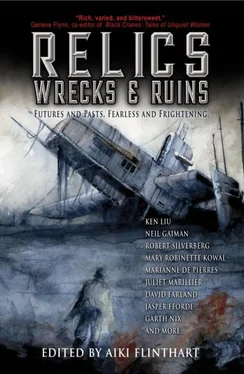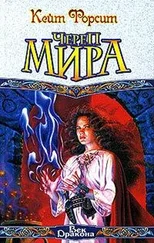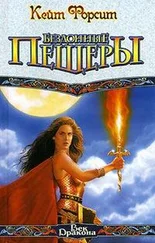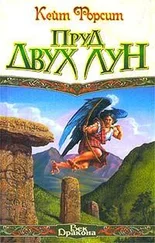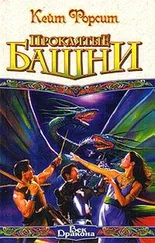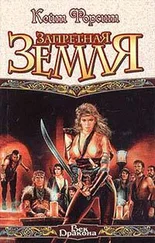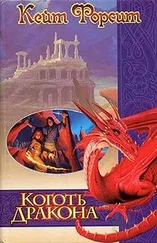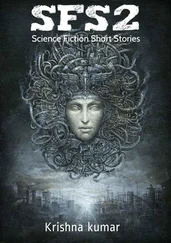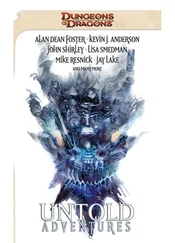Laura had elected to skip her Wednesday Morning Club: she just wasn’t in the mood for mahjong, chamomile tea, and the usual array of finger sandwiches, scones, marmalade, lemon curd, herbed butter, and pickled salmon. And she wasn’t in the mood to spend the usual time painting her face and coordinating an appropriate wardrobe assemblage. So she slept in, then took a wake-up Adderall and made her autogenic way to the bathroom for a pee.
Her bathroom in the Pierre was large and ornate enough to give her mother’s mirror an appropriate rather than garish pride of place. She leaned her pelvis against the lip of the sink and looked at her reflection. Then, as she had done once before, a lifetime before, she made an odd gurgling sound and suddenly stepped backwards, as if she had just seen a ghost—or, rather, two ghosts—for reflected in the ornately framed mirror was herself… and Norman. Both old. Together.
Norman’s face was partially lathered with shaving soap. He winked at her, or perhaps he just blinked. She could see a powdery white spot of aluminum sulfate on his chin where, theoretically, moments ago she had applied a styptic pencil.
“Norman?” she asked.
“Okay, I’ll do it this afternoon,” Norman said, looking blankly into the mirror. He was referring to Laura’s previous request to mow the lawn—that being the Laura on the Lighthouse Point side of the mirror.
And Laura, second-chance Laura, if you like, extended her hand toward the mirror. She expected the surface to be blood warm and viscous, expected it to be as slippery as mercury… expected to feel the mirror’s palpable adamantine suction. She pressed against the glass, which felt cool, actually cold. Resistant as time itself.
She pressed harder, pushed against the mirror, which was nothing more than a large, impermeable object affixed firmly to the bathroom wall; she pushed against it with both hands until her arms ached from the pressure and her palms felt hot, as if pulsing in time to some unknown rhythm. Finally, she gave up, stepped back, and stared intently, desperately into the mirror.
But there was nothing there, nothing to see and regret, just an empty reflection of the other side of the room…

Heartbreak Hotel
By Dirk Flinthart
The applause dies away. Elvis watches as Marilyn stumbles in her high heels on the steps leading backstage, the tight, sequinned dress restricting her movements. Frank catches her before she can fall, holding her a little too long, a little too close. Elvis checks the impulse to intervene. Marilyn knows her way around men.
She pushes away from Frank and composes herself. “Do you think they liked it?” she asks in that breathy, little-girl voice. “I… I couldn’t see past the footlights.”
“Sure, doll,” says Frank. “Look at you! What’s not to like?” Smiling, but those blue eyes are slow and cold, and he wets his upper lip with the tip of his tongue. Marilyn moves closer to Elvis, holding his arm the way a small child might hold a plush toy, for comfort.
“It was a good set, Marilyn,” Elvis says. “It’s always good. They love you.”
“It’s just… I couldn’t see anyone. Was there… is there a good audience tonight?”
“You can’t see squat without those glasses of yours,” Frank says. “Good audience? Listen! They’re lapping up Bob’s stuff.”
A ripple of laughter makes its way backstage, and then another, and another as Bob delivers his trademark one-liners, playing the crowd like an instrument.
“It’s always a good audience,” Elvis says.
“Always the same audience,” Marilyn says. “I worry maybe they’ll get bored.”
“With you?” He smiles. “That just couldn’t ever happen.” He listens for a moment, and hears a familiar punchline. The audience dissolves into hilarity. “Bob’s nearly done.” He glances at Frank. “You ready?”
Frank makes finger-guns and shoots Elvis with imaginary bullets. “I’m always ready,” he says. “Just show me the mike.” He saunters away, tugging his fedora down over one eye.
“I wish I had his confidence,” Marilyn says.
“He’s a cocky sonofabitch,” Elvis says, “but he’s sure enough got a voice.” She’s about to reply, but something comes in. He almost clears it, but he realizes it’s closer than it should be. He’s been careless. “Hold that thought, honey,” he says. “I’ll be back.”
#
The moment they catch sight of him, panic strikes. Bullets rip snarling holes through the air, punching through his body and out the other side without slowing. He lets them shoot, studying them the while. At least a dozen. They have the look of desert scavengers in old-school military camouflage decked out with goggles and improvised headwraps to keep the heat and the dust at bay. Their weapons are mismatched. Their discipline is poor and their fire control worse. He watches and waits.
The gunfire turns sporadic as some take cover, some try to change magazines, and some maybe realize at last things aren’t what they seem. One of them holds up a fist, and the last shooters stop.
He looks more carefully at the one with the fist. It isn’t easy to distinguish much out here. He’s restricted to visible light and a bit of the infrared spectrum, so about all he can tell is that the leader is a man, maybe a little older than most of the others. They’re all thin. Their clothes hang loosely over angular limbs.
“Where are you from?” he asks at last.
It’s enough to startle the men.
“A ghost!” someone shouts. “Like Stein said! We shouldn’t be here, man.”
The leader holds up that fist again, opens his hand, palm flat. “No ghosts here, Davis,” he says. “That’s some kind of 3D projection.” The goggles glint in the sunlight as he tilts his head this way and that.
Finally, the leader shuffles close. He strips off a glove and extends a hand, then yanks it back. “Water,” he calls. “There’s a mist sprayer here. They’re using lasers, shining them into the super-fine spray. Old technology.”
Smart, then.
The leader moves his wet hand towards his mouth. Elvis shakes his head. “Wouldn’t do that,” he says.
The leader stops, and pushes his goggles up his forehead. He waits on Elvis.
“They never fixed up Hoover Dam rightwise after the Trumpists tried to blow it. Lake Mead’s not much anymore. We don’t get snowpack on the mountains like we used to, either. Water from the mister ain’t meant for drinking. Not sure it ever was, to be truthful. They put ’em up to cool the streets for the gamblers and tourists.”
The leader shakes his head, and the men mutter. The local pickups aren’t good enough for him to get everything they’re saying, but they seem shocked at the idea of spraying fresh water just to cool people.
“You got a name?” the leader asks.
“Not for you,” he says. “You and yours—you’re leaving. This ain’t your turf.”
The leader studies him. “You look like that old time singer. I’ve seen video. Elvis. I’m going to call you that. I’m Desmond Garnett, Elvis. Colonel Desmond Garnett. ESA Special Forces.”
“Eastern States of America,” Elvis says.
“You’ve heard of us?” Garnett pushes his goggles up his forehead and peers at Elvis.
“It’s an easy jump to make. I’ll give you a few more, for free.” Elvis gestures at the ragtag group. “I was in the army for a spell. I can see your guns don’t match. Your uniforms are trash. Your training is slipshod. If you’re Special Forces, I’m a bluetick hound.”
Garnett gives him a tight, wintry smile. “I’ll allow as I’ve had to recruit from outside my usual pool of talent. This here’s a low-key, fully deniable mission. There’s a degree of uncertainty regarding the border between the ESA and the Republic of the Pacific Coast, and my superiors would rather not raise that issue at the present time. But let me assure you, son…” He lifts his chin, and throws out his chest. “I have the full backing of the duly constituted government of the ESA, and if and when I send the call for backup, there will be a ruckus of the sort that will make you wish you’d never crossed paths with me. So why don’t you just walk back that nonsense about ‘my turf’, and maybe we can talk like civilized men?”
Читать дальше
